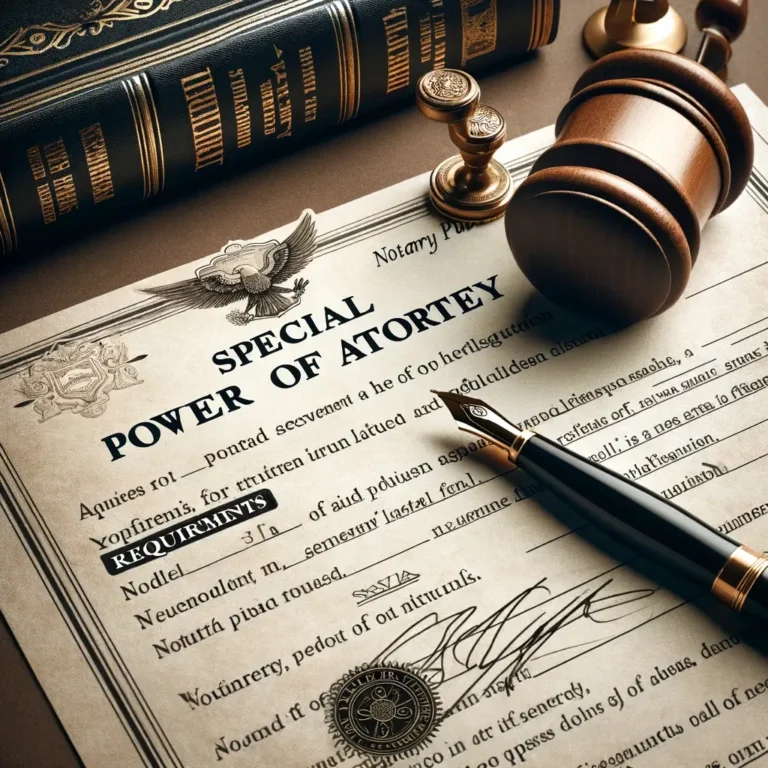In this article we have explained How To Handle A Property Dispute?.Property disputes are a common occurrence in India, often leading to lengthy legal battles and strained relationships. Understanding how to navigate these disputes with the help of Indian law can save you time, money, and stress. This article offers a straightforward guide on handling property disputes in India, ensuring you know your rights and the steps to take to resolve issues amicably and effectively.
Understanding Property Disputes
What Are Property Disputes?
Property disputes involve disagreements regarding the ownership, use, or boundaries of land or buildings. These can arise from unclear wills, sale deeds, or disputes between family members over ancestral property.
Common Types of Property Disputes
- Boundary and Title Disputes: Conflicts over where your property ends and another begins or issues with the property title.
- Inheritance Disputes: Disagreements among heirs on how property should be divided.
- Landlord-Tenant Disputes: Conflicts over lease agreements, evictions, or rent.
How To Handle A Property Dispute In India: A Simple Guide
Steps To Handle Property Disputes
Step 1: Understand Your Legal Rights
Before taking any action, it’s crucial to know your rights. Indian property law covers various aspects, including land ownership, inheritance, and tenant rights. Consulting with a legal expert can provide clarity on your position in a dispute.
Step 2: Gather All Necessary Documents
Documentation is key in property disputes. Ensure you have all relevant documents, such as title deeds, wills, agreements, and any other proof of ownership or entitlement.
Step 3: Attempt to Resolve the Dispute Amicably
Before heading to court, try to resolve the issue through dialogue. Mediation by a neutral third party can also be a less adversarial and more cost-effective way to reach an agreement.
Step 4: Legal Notice
If amicable resolution fails, the next step is to send a legal notice to the other party through a lawyer. This notice formally communicates your claim and the intention to take legal action if the dispute is not resolved.
Step 5: Litigation
As a last resort, filing a lawsuit in the appropriate court might be necessary. This step involves presenting your case in front of a judge, backed by all legal documents and evidence.
Step 6: Alternative Dispute Resolution (ADR)
Consider ADR methods like arbitration or mediation. These processes are usually faster and less expensive than court proceedings.
Preventing Property Disputes
- Clear Documentation: Ensure all property documents are clear, up-to-date, and legally binding.
- Professional Legal Advice: Consulting with a lawyer can help prevent disputes before they arise.
- Regular Communication: Open lines of communication with all parties involved can prevent misunderstandings and disputes.
FAQs on Handling Property Disputes in India
1. What is a property dispute?
A property dispute involves disagreements over ownership, use, or boundaries of land or buildings.
2. What causes property disputes in India?
Disputes often arise from unclear wills, sale deeds, boundary issues, or family disagreements over ancestral property.
3. How can I prevent property disputes?
Ensure clear documentation, seek legal advice before transactions, and maintain open communication with all parties involved.
4. What documents do I need to resolve a property dispute?
You’ll need title deeds, wills, sale agreements, and any other proof of ownership or entitlement.
5. Can property disputes be resolved amicably?
Yes, it’s advisable to first attempt an amicable resolution through dialogue or mediation.
6. What is a legal notice in a property dispute?
A legal notice is a formal communication sent through a lawyer to the opposing party, stating your claim and intention to pursue legal action if unresolved.
7. What is mediation in property disputes?
Mediation involves a neutral third party helping the disputing parties reach a mutually agreeable solution.
8. How long do property disputes take to resolve in court?
The duration can vary widely, from a few months to several years, depending on the complexity of the dispute.
9. What is the role of a lawyer in a property dispute?
A lawyer provides legal advice, represents you in court, and helps in drafting and sending legal notices and documents.
10. Can I sell a property under dispute?
Selling a disputed property is legally challenging and might not be possible until the dispute is resolved.
11. What is arbitration in property disputes?
Arbitration involves resolving disputes outside the court, where an arbitrator makes a binding decision.
12. How does inheritance law affect property disputes?
Inheritance law governs how property is passed down after someone dies, which can often lead to disputes among heirs.
13. What is adverse possession?
Adverse possession is a legal principle that allows a person to claim ownership of land after occupying it for a specific period, under certain conditions.
14. How can I check the title of a property?
You can check property titles at the local land registry office or through online government portals in some areas.
15. What if the other party does not respond to a legal notice?
If there’s no response to a legal notice, you may proceed with filing a lawsuit in the appropriate court.
16. Are verbal agreements valid in property disputes?
While verbal agreements can be legally binding, proving them in court is difficult. Written agreements are always preferable.
17. Can a property dispute affect my credit score?
Directly, no. However, the financial strain of legal battles can impact your financial stability.
18. What is a partition suit?
A partition suit is filed when property co-owners cannot agree on how to divide the property and seek legal division.
19. Can tenants be involved in property disputes?
Yes, disputes between landlords and tenants over agreements, evictions, or rent are common.
20. How is property divided in a divorce?
Property division in a divorce depends on various factors, including the type of marriage law applicable and mutual agreements.
21. What is encroachment?
Encroachment occurs when one property owner violates the property boundaries of another, leading to disputes.
22. Can I resolve a dispute without going to court?
Yes, through mediation, arbitration, or direct negotiation, many disputes are resolved without court intervention.
23. What happens if I lose a property dispute case?
If you lose, you may be required to pay damages, relinquish property rights, or cover legal costs.
24. Can I appeal a property dispute decision?
Yes, you can appeal to a higher court if you believe the decision was incorrect or unjust.
25. What are boundary disputes?
Boundary disputes arise over disagreements regarding the exact line dividing two properties.
26. How can I find a good property lawyer?
Look for lawyers specializing in property law with a strong track record, and seek recommendations from trusted sources.
27. Is it expensive to resolve a property dispute in India?
Costs can vary widely depending on the dispute’s complexity, lawyer fees, and duration of the court process.
28. Can a will be contested in a property dispute?
Yes, wills can be contested if there are doubts about their validity or the testator’s intentions.
29. What is a mutation of property?
Mutation refers to the change of title ownership from one person to another in the land revenue records.
30. How do I know which court to approach for my property dispute?
The jurisdiction typically depends on the property’s location and the dispute’s nature. A lawyer can advise on the appropriate court.
















